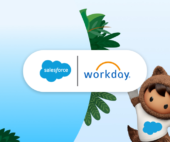Parker Harris holds conflicting views on artificial intelligence (AI). As the co-founder of Salesforce, he has urged the company’s leaders to swiftly integrate AI into their products. However, he grapples with concerns about maintaining the balance between speed and the company’s reputation for delivering high-quality solutions to clients. This dilemma has even led him to lose sleep.
Expressing his anxiety at Salesforce’s World Tour event in New York City, Harris emphasized the unprecedented pace of AI development. He feels a sense of urgency to accelerate the adoption of AI technologies, driven by the need to meet customer expectations. Yet, he recognizes the importance of caution, knowing that customers rely on Salesforce to provide reliable solutions. Harris acknowledges the challenge of navigating this balance, pondering how to move quickly without making critical mistakes.
Transitioning to his role as chief technology officer at Slack, a subsidiary of Salesforce, Harris reflected on AI’s potential, particularly its ability to generate images and videos from simple prompts. However, he tempered the enthusiasm by noting that what may seem like “magic tricks” on social media platforms may not necessarily translate effectively in workplace contexts.
Harris also acknowledged the pervasive fear among entrepreneurs of missing out on the AI revolution, especially after a significant milestone in February when OpenAI, a market leader, was valued at $80 billion. This realization, coupled with the partnership between Salesforce rival Microsoft and OpenAI, prompted Harris and Salesforce co-founder Marc Benioff to acknowledge their need to catch up in the AI race.
Salesforce’s main AI offering, Einstein, enables businesses to create predictive AI models using proprietary customer data. In Slack, enterprises can access Slack AI, a tool that summarizes conversations and provides answers to questions, for a monthly fee of $10 per person.
Despite the promise of AI, Harris highlighted a critical issue: trust. He expressed concerns about AI occasionally providing inaccurate information or omitting key details, which could erode user trust in the technology. Maintaining trust is crucial, as users are unlikely to continue using AI tools if they encounter such troubling issues.













